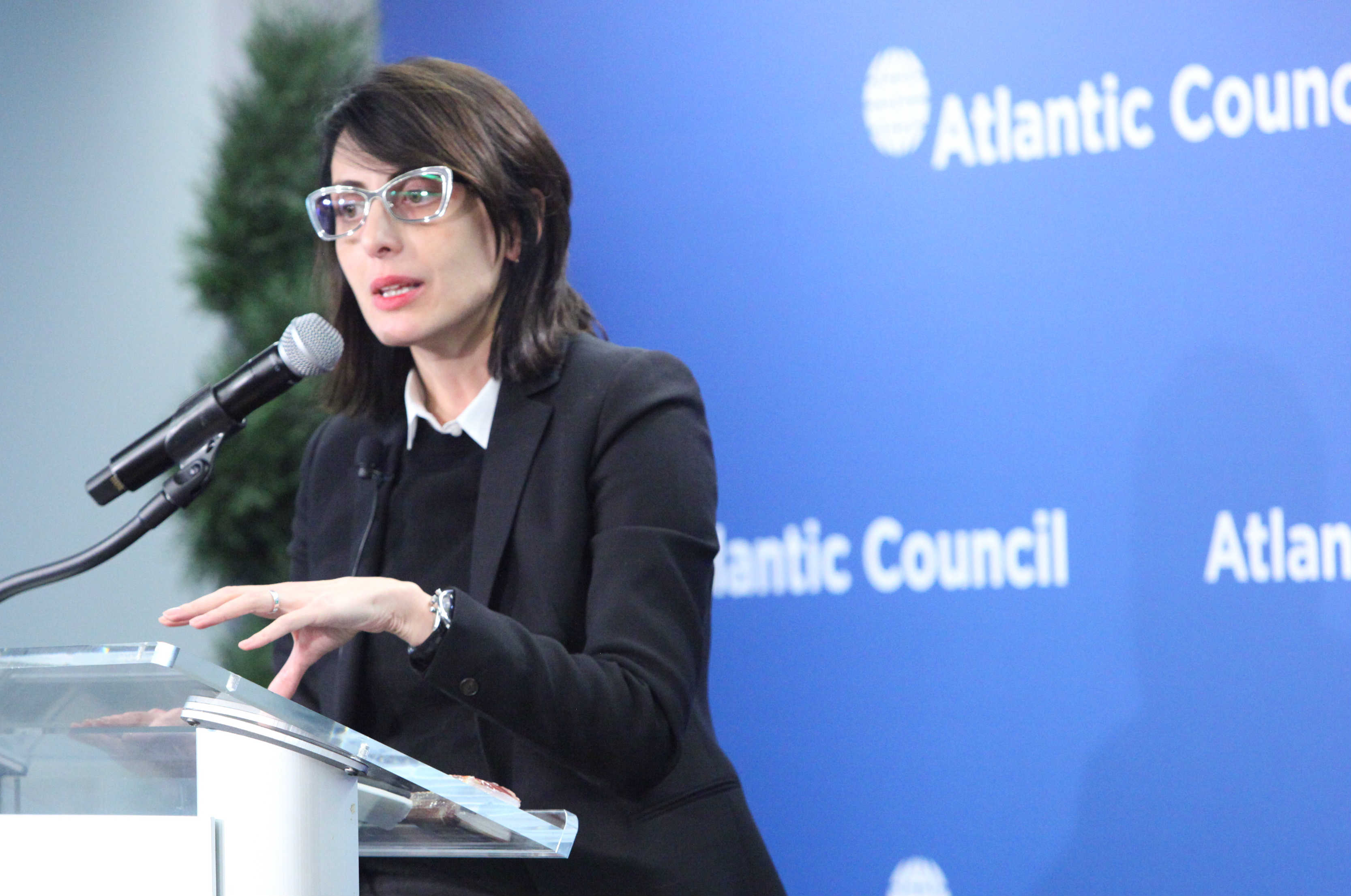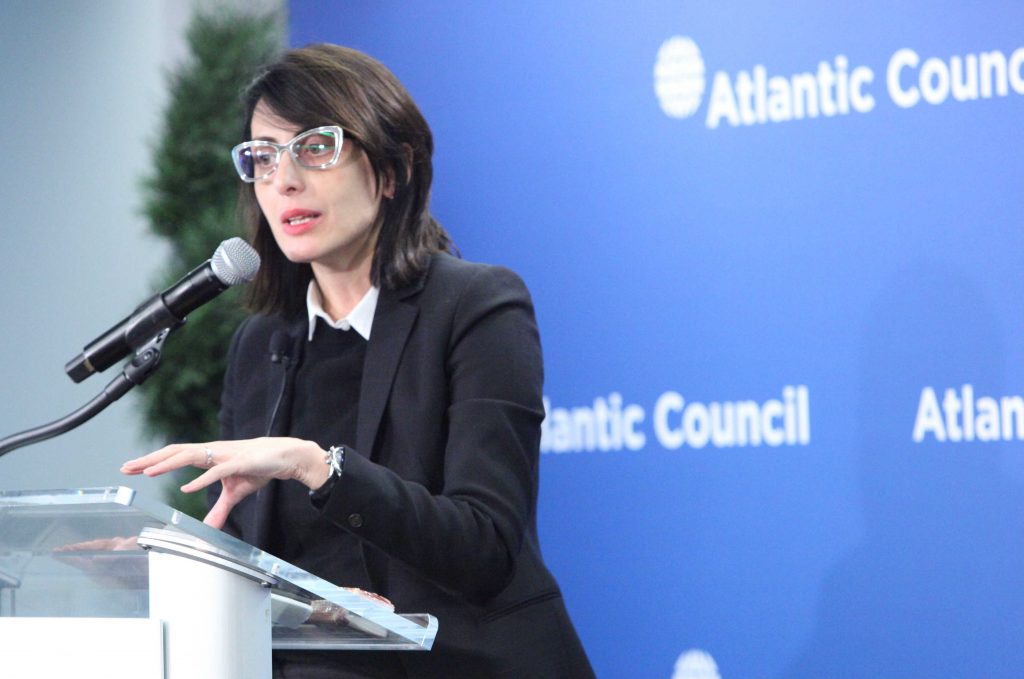 Ukrainians are growing increasingly impatient with Ukraine’s lack of reforms. But the country’s police reforms are working, says Khatia Dekanoidze, the newly-appointed chief of the Ukrainian National Police.
Ukrainians are growing increasingly impatient with Ukraine’s lack of reforms. But the country’s police reforms are working, says Khatia Dekanoidze, the newly-appointed chief of the Ukrainian National Police.
How does she know?
“The number one tool to…measure effectiveness of police is trust,” Dekanoidze said on December 15 at an Atlantic Council event. Dekanoidze joined John Herbst, Director of the Dinu Patriciu Eurasia Center, for a conversation.
Public trust in police has jumped from 6-7 percent to 86 percent after the new patrol police took to the streets in July, she said.
And she told about her own experience. A woman recently stopped her in downtown Kyiv on Khmelnitsky Street and asked, “Do you know where I can go to bribe police officers? Because the new ones, they don’t take bribes.”
Herbst called Dekanoidze “a serious reformer who did serious work in Georgia.”
Prior to her appointment as chief, she served as an adviser to the Minister of Internal Affairs, Arsen Avakov, and played a critical role in launching Ukraine’s patrol police reform.
Dekanoidze previously held several positions in the Georgian government, including Minister of Education and Science, Head of the Ministry of Internal Affairs’ Police Academy, and Political Counselor at the Georgian Embassy in the United States.
Ukraine’s police force has had a reputation for corruption since Ukraine’s independence. After the Euromaidan, the Ministry of Internal Affairs—with support from the US, Japan, and the European Union—replaced Kyiv’s police force in July 2015. Odesa and Lviv followed suit in August, and there are plans to carry out similar reforms across Ukraine’s other major cities. By May 2016, ten thousand traffic police officers will be on the streets in twenty-nine cities, including Kramatorsk, Mariupol, and Severodonetsk—all cities close to the fighting in eastern Ukraine.
When they opened the call for patrol police, 34,000 ordinary people, from teachers to businessmen, applied. More than 90 percent of the candidates had higher education degrees.
“It was a story of success for Ukraine,” Dekanoidze said.
But she didn’t stop there. Dekanoidze then turned her attention to an even thornier problem.
On November 7, a national police force was established and she became Ukraine’s first-ever chief of national police. The much-derided militsiya—the post-Soviet militarized police—has been disbanded.
The challenge is to hire 130,000 “fair and clean” police officers. Officers will be hired on a temporary basis, and will become permanent employees after a thorough vetting process that includes tests of general skills and review by a panel that includes representatives from the national police and civil society. The entire force is being vetted to “restore credibility and trust.”
The national police is much broader than the patrol police. Its responsibilities include monitoring the behavior of officers, investigating crimes, conducting investigations, manning an anti-drug unit, looking into economic crimes, and overseeing public safety.
Dekanoidze called it “the backbone of the internal security of the country.”
In addition to testing and interviews, Dekanoidze said that increasing salaries is key to establishing a clean force.
“If I have good salary…I can feed my family and I can be free of corruption,” she said.
The lowest-paid police officer makes only 2,500 hryvnias (approximately $100) per month. That salary will likely be increased to 6,000 hryvnias (approximately $300) in January. More specialized units, like investigators and the SWAT team, will earn more.
After 100 days, Dekanoidze has pledged to visit each city where reforms have taken place and take the pulse on the ground with extensive surveys.
In two years, it’s possible that Ukraine will have a police force that’s oriented toward serving and protecting, Dekanoidze said.
“It will be a success story for [the] nation,” she promised.
Melinda Haring is editor of the Ukraine Alert at the Atlantic Council.
Image: Khatia Dekanoidze, the newly-appointed chief of the Ukrainian National Police, speaks at the Atlantic Council on December 15.
